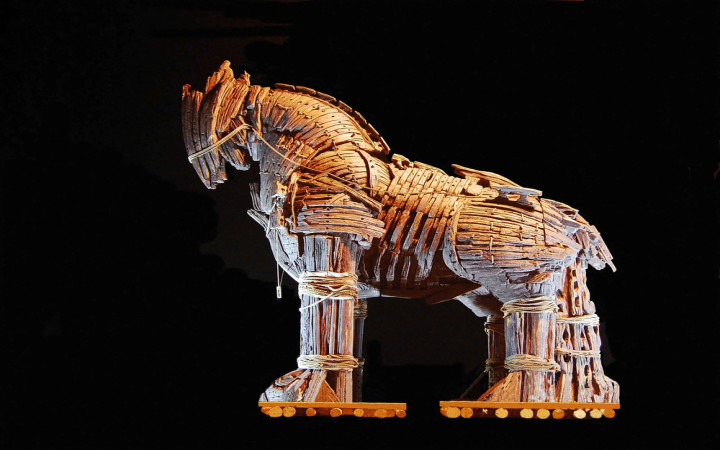Today's Wonder of the Day takes us on a trip way back to the time of the Trojan War. As told in Virgil's Aeneid, a famous epic poem, the Greeks had tried to conquer the ancient city of Troy and the Trojan people who lived there for over 10 years.
They finally succeeded, thanks to a devious bit of trickery. The Greeks, under the guidance of Odysseus, built a huge wooden horse — the horse was the symbol of the city of Troy — and left it at the gates of Troy. They then pretended to sail away.
The Trojans believed the huge wooden horse was a peace offering to their gods and thus a symbol of their victory after a long siege. They pulled the giant wooden horse into the middle of the city.
They didn't realize that the Greeks had hidden a select group of soldiers inside the horse. That night, after the Trojans had gone to bed, the Greek soldiers inside the horse were able to get out and open the gates of the city to let in the remainder of the Greek army, which had sailed back under the cover of night.
Taking the Trojans by surprise in the middle of the night, the Greeks were able finally to conquer Troy. Today, the term “Trojan horse" is still used to refer to any kind of deception or trick that involves getting a target willingly to allow an enemy into a secure place.
The Trojan horse is also the source of the nickname “Trojans" for computer programs — called malware — that can infect computer systems. Many of these harmful programs appear to be useful or merely harmless programs. In this way, they convince users to install and run them, not realizing what harm they can do once they're installed.




